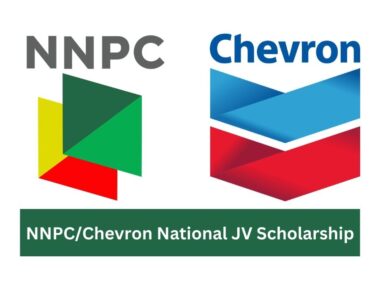How to Get a Job While on a Student Visa or Scholarship
Studying abroad on a student visa or scholarship offers incredible opportunities for personal and professional growth. However, the added challenge of securing employment while adhering to legal, academic, and cultural norms can be daunting. This comprehensive guide will outline strategies and best practices for landing a job while studying on a student visa or scholarship.
1. Understand Your Visa Regulations
Before applying for jobs, familiarize yourself with the legal restrictions and opportunities related to your visa. Different countries have varying rules, and violating them could jeopardize your visa status.
Common Regulations:
- Work Hour Limits: Many countries allow international students to work part-time, typically 20 hours per week during the academic term and full-time during breaks.
- Job Types: Some visas restrict the type of work you can do, such as allowing only on-campus jobs or positions related to your field of study.
- Special Permissions: Certain countries may require a work permit or prior approval from immigration authorities.
- Post-Study Work Opportunities: Explore pathways to extend your stay after graduation, such as Optional Practical Training (OPT) in the U.S. or Post-Graduation Work Permits (PGWP) in Canada.
Action Steps:
- Read your visa guidelines carefully.
- Consult your university’s international student office.
- Stay updated on immigration policies through government websites or legal advisors.
2. Identify Your Goals
Clarify your objectives to streamline your job search. Consider:
- Financial Needs: Do you need a job to cover living expenses, or are you seeking professional experience?
- Career Goals: Are you aiming for positions that align with your long-term career aspirations?
- Time Management: Balance work commitments with your academic and extracurricular responsibilities.
Action Steps:
- Make a list of priorities (e.g., income, skill-building, networking).
- Use your career goals to guide your job applications.
ALSO READ: Top Fully Funding Scholarships for Youths in 2025
3. Explore On-Campus Opportunities
On-campus jobs are often the easiest and safest options for international students as they’re usually exempt from work restrictions.
Examples of On-Campus Jobs:
- Library assistant
- Research or teaching assistant
- Administrative roles in university offices
- Cafeteria or bookstore employee
- IT or tech support
Benefits:
- Proximity to classes and residence halls
- Flexible hours tailored to student schedules
- Compliance with visa regulations
Action Steps:
- Check your university’s job portal or career center.
- Network with professors and administrative staff for openings.
- Attend job fairs hosted on campus.
4. Leverage Networking
Building a strong professional network can lead to job opportunities that aren’t advertised publicly.
Key Networking Strategies:
- University Events: Attend career fairs, alumni events, and guest lectures.
- LinkedIn: Connect with classmates, professors, and professionals in your field.
- Student Organizations: Join clubs or societies related to your interests and career goals.
- Mentorship Programs: Seek guidance from faculty, alumni, or industry professionals.
Action Steps:
- Practice your elevator pitch.
- Regularly update your LinkedIn profile with skills and achievements.
- Follow up with contacts after events to maintain relationships.
5. Use University Career Services
Most universities offer robust career support services, including resume reviews, interview preparation, and job search assistance.
Available Resources:
- Career Advisors: Schedule one-on-one consultations for personalized advice.
- Job Portals: Explore university-exclusive job boards.
- Workshops: Attend sessions on topics like resume writing, interview skills, and networking.
Action Steps:
- Visit the career center early in your academic journey.
- Actively participate in workshops and career events.
- Apply for jobs through university-recommended platforms.
6. Seek Off-Campus Employment Opportunities
Depending on your visa, you may be eligible to work off-campus under specific conditions. These opportunities can provide valuable real-world experience.
Common Off-Campus Jobs:
- Internships
- Freelance work (e.g., writing, graphic design, coding)
- Tutoring or teaching assistant roles
Legal Considerations:
- Verify eligibility for off-campus work.
- Ensure the employer understands your visa restrictions.
- Maintain proper documentation, such as offer letters and pay stubs.
Action Steps:
- Research companies that hire international students.
- Use platforms like LinkedIn, Indeed, and Glassdoor for job listings.
- Tailor your applications to highlight skills and adaptability.
ALSO READ: FAO Internship Program 2025: A Global Opportunity for Students and Recent Graduates
7. Pursue Internships
Internships can be a stepping stone to full-time employment and are often visa-compliant, especially if they are part of your academic program.
Benefits of Internships:
- Gain hands-on experience in your field.
- Build a professional network.
- Enhance your resume with relevant skills.
Action Steps:
- Check if your program requires or supports internships.
- Apply early for competitive positions.
- Use your university’s internship database or career fairs.
8. Freelancing and Gig Economy
Freelancing can be a flexible option if your visa permits self-employment or freelance work. Common roles include:
- Graphic design
- Content writing
- Web development
- Social media management
Platforms to Explore:
- Upwork
- Fiverr
- Freelancer
Action Steps:
- Verify visa compliance for freelance work.
- Build a portfolio showcasing your skills.
- Market yourself through online platforms and social media.
9. Develop Your Soft and Hard Skills
Employers value a mix of technical expertise and interpersonal skills. Use your time as a student to enhance both.
Key Skills to Focus On:
- Soft Skills: Communication, teamwork, problem-solving, adaptability
- Hard Skills: Industry-specific knowledge, software proficiency, data analysis
Resources for Skill Development:
- Online courses (e.g., Coursera, edX, LinkedIn Learning)
- University workshops
- Volunteer work or student organizations
Action Steps:
- Identify skills relevant to your career goals.
- Dedicate time each week to skill-building activities.
- Document new skills on your resume and LinkedIn profile.
10. Tailor Your Application Materials
A strong resume and cover letter tailored to each job application can significantly improve your chances of success.
Tips for a Winning Resume:
- Highlight relevant experience and skills.
- Use clear, concise language.
- Quantify achievements (e.g., “Increased sales by 20%”).
Tips for a Compelling Cover Letter:
- Address the hiring manager by name.
- Explain why you’re interested in the role.
- Showcase how your skills meet the job’s requirements.
Action Steps:
- Use templates or seek feedback from career advisors.
- Tailor each application to the specific job description.
- Proofread thoroughly to avoid errors.
11. Prepare for Interviews
Effective preparation can set you apart from other candidates.
Common Questions:
- “Tell me about yourself.”
- “What are your strengths and weaknesses?”
- “Why are you interested in this position?”
Preparation Tips:
- Research the company and role.
- Practice answering common questions with examples.
- Prepare questions to ask the interviewer.
Action Steps:
- Conduct mock interviews with peers or career advisors.
- Dress professionally, even for virtual interviews.
- Follow up with a thank-you email after the interview.
12. Utilize Alumni Networks
Alumni networks can be a goldmine for job leads and mentorship.
Ways to Connect:
- Join alumni groups on LinkedIn.
- Attend alumni events hosted by your university.
- Reach out to alumni in your field for informational interviews.
Action Steps:
- Research alumni working in companies or industries of interest.
- Send personalized messages when reaching out.
- Express gratitude for any advice or assistance offered.
If you’re on a scholarship, the organization sponsoring your studies may offer job-related support.
Opportunities:
- Networking events or conferences
- Mentorship programs
- Internships or job placements within the organization
Action Steps:
- Stay engaged with your scholarship community.
- Ask about career support services.
- Highlight your scholarship in applications to showcase credibility.
14. Balance Work and Academics
Maintaining a healthy balance between work and academics is crucial to ensure you meet the conditions of your visa or

